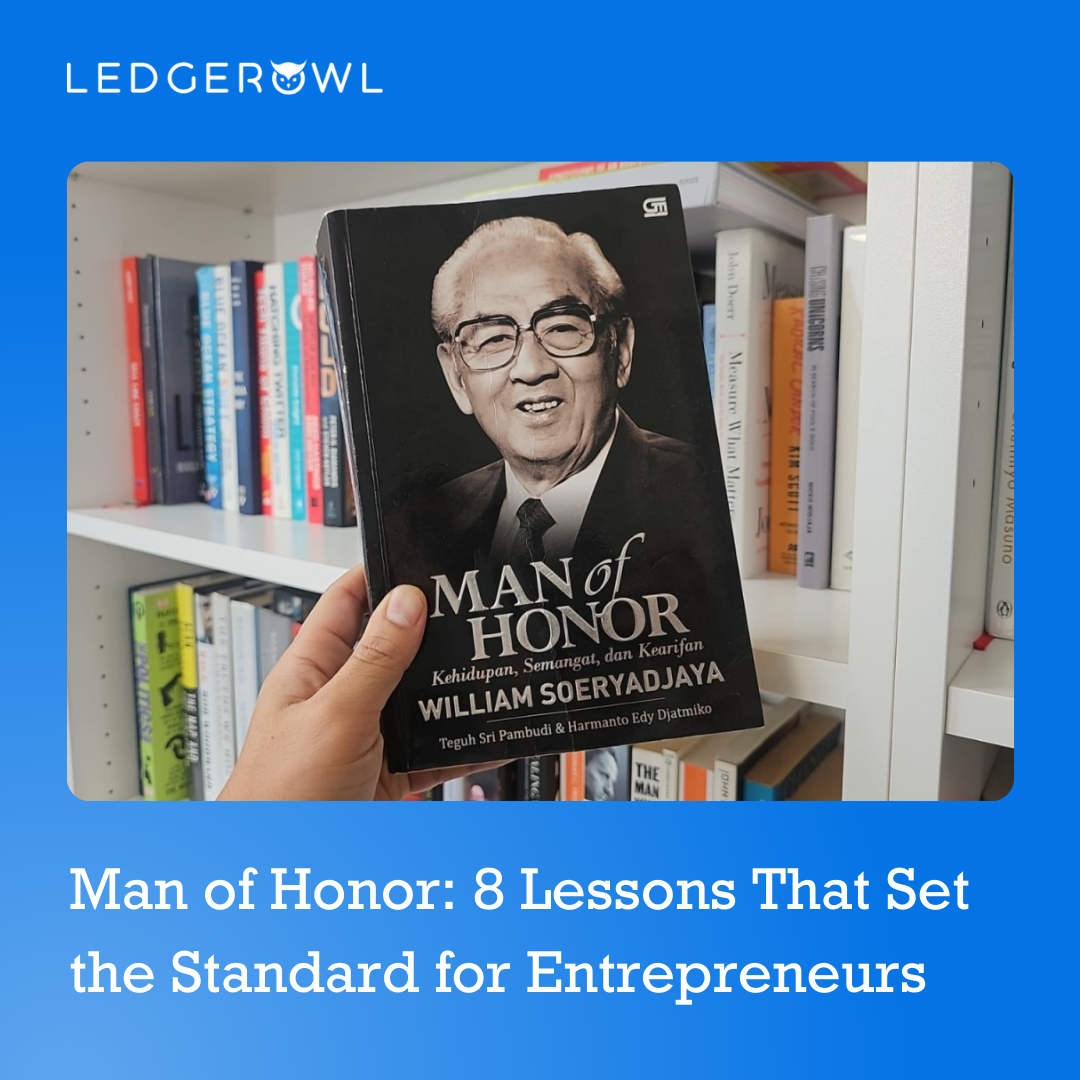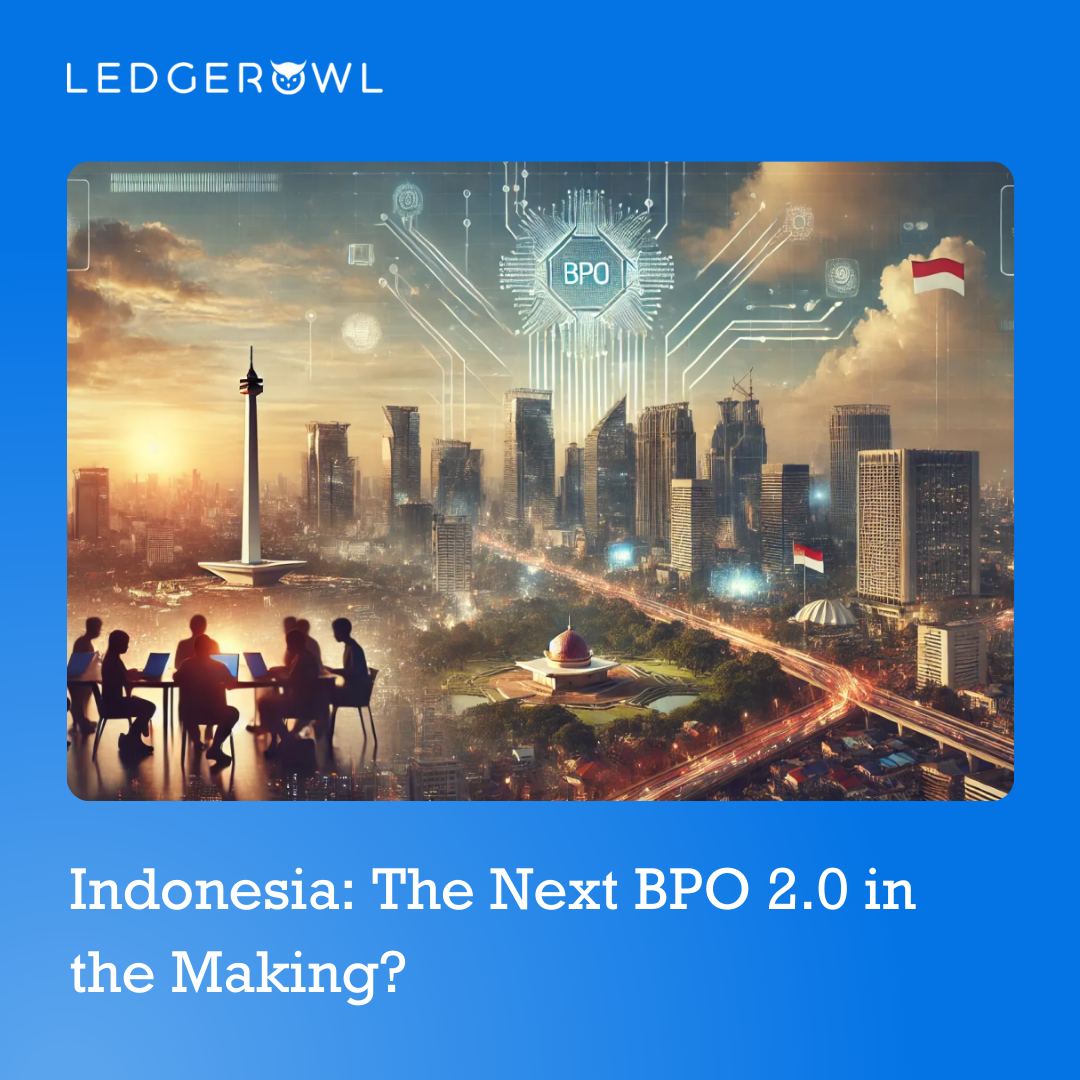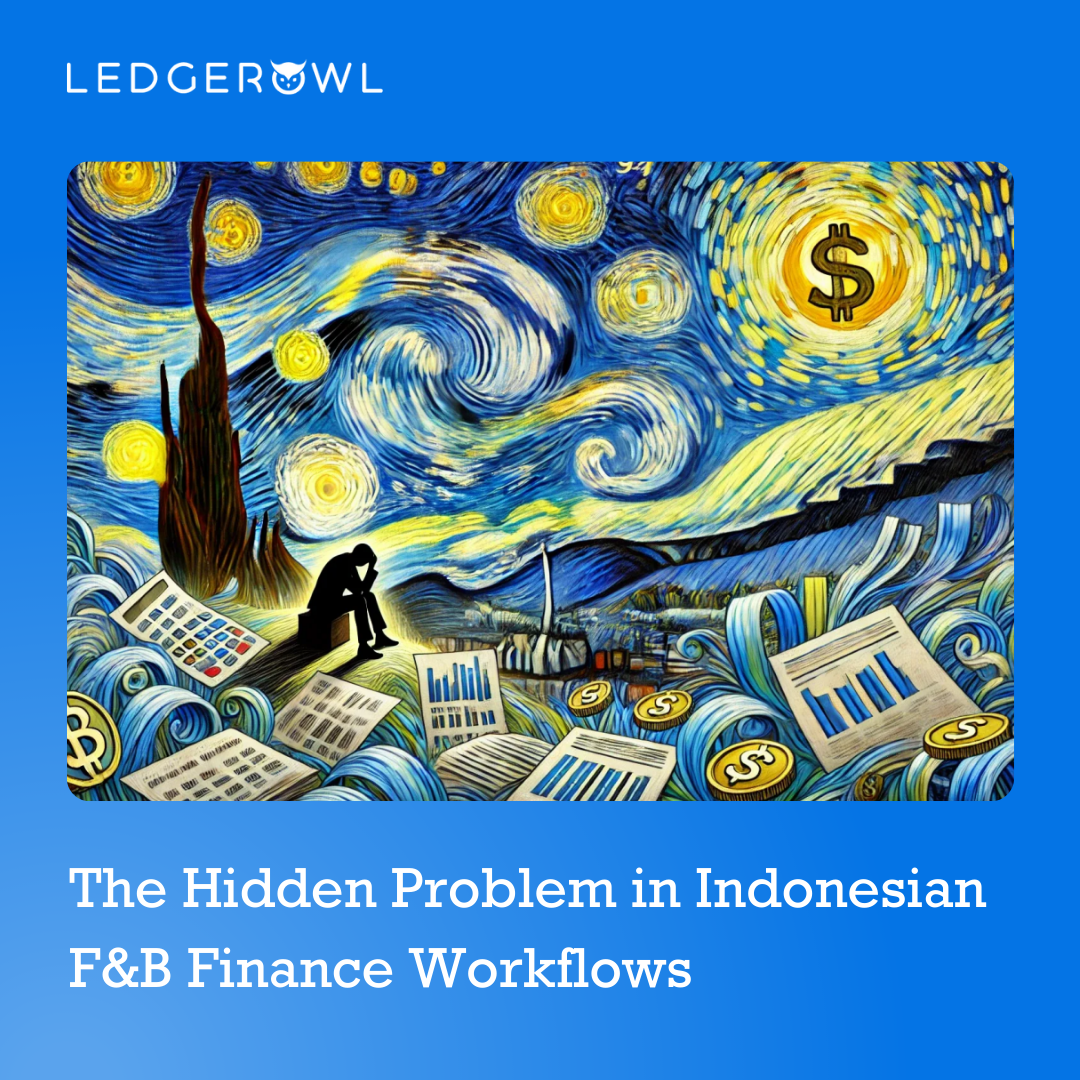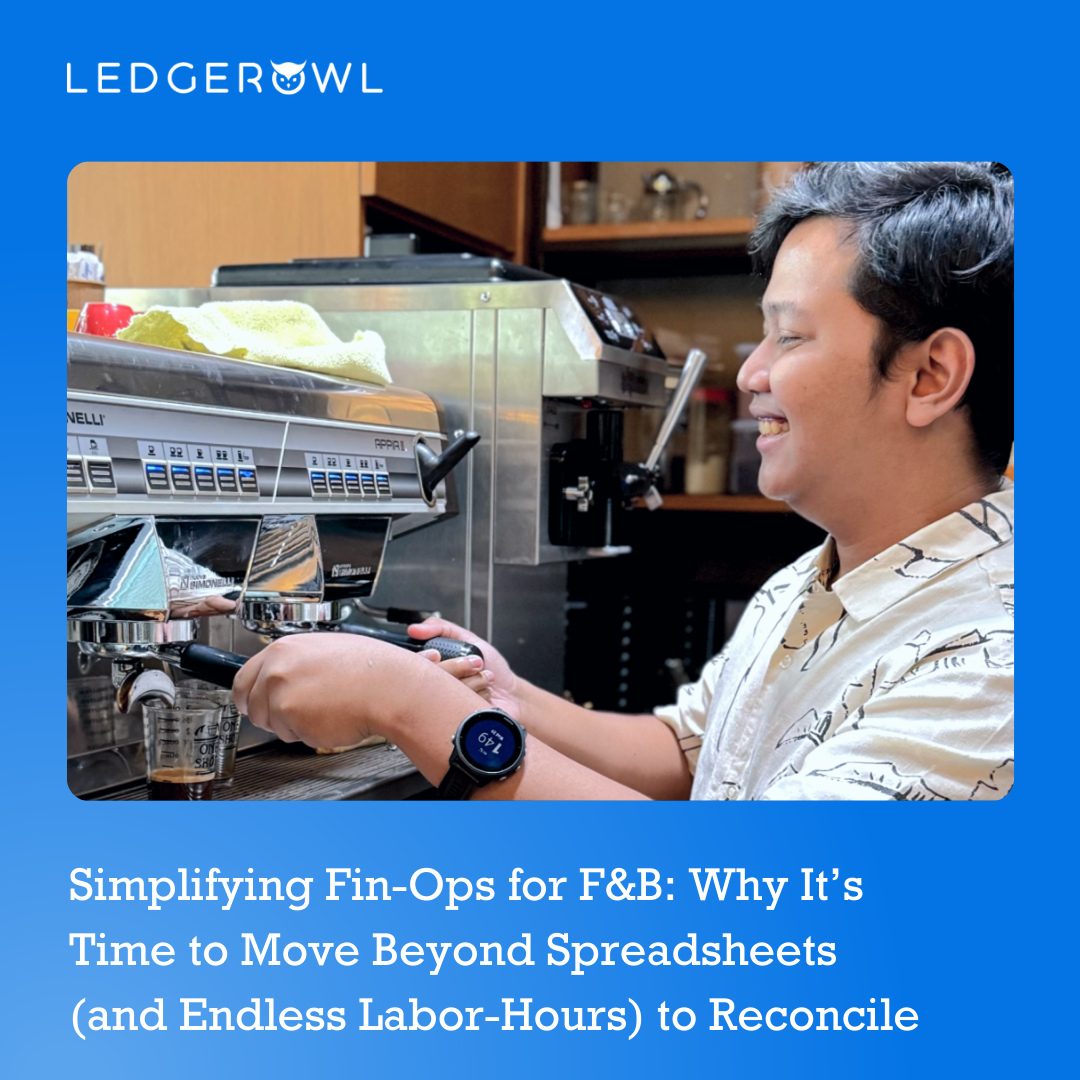Did you know Astra International was started by just four people? And that its first business wasn’t in cars, but in trading fruits and other produce? Today, it’s Indonesia’s largest automotive manufacturer and retailer – a remarkable leap from its modest start.
The success of companies like Astra always raises a question: How did they do it? Building a lasting company that employs thousands and boosts the economy is no small feat. In my view, it’s one of the most rewarding careers out there.
Yet, William Soeryadjaya, the man behind Astra, is not widely known to most people in my generation or younger. I found this out myself when I struggled to learn more about him. The main source of my research was his biography, Man of Honor, written by Teguh Sri Pambudi and Harmanto Edy Djatmiko. Before reading this book, I knew little about this influential business figure.
While I never had the chance to work with William, his story left a strong impression on me. His journey is something I want to share, even with my own son. The book, featuring insights from his family, close friends, and even Indonesia’s vice-president, is as close as you can get to understanding the man behind Astra. I highly recommend picking up a copy to learn more about his story.
Here are eight lessons I learned from the founder of Astra International:
Integrity Above Everything
No one wants to work with those who lack a moral compass. Integrity is non-negotiable.
William Soeryadjaya’s dedication to integrity was put to the test during one of his most difficult business moments. Many may not remember the collapse of Bank Summa in 1992, but it was a turning point for William and his family. The bank, owned by a family member, was on the brink of liquidation, endangering the depositors’ money.
My parents, former customers of Bank Summa, recalled the turmoil. They were warned that their savings might be lost as the bank was failing. Feeling helpless, they made a vow: if they ever got their money back, they would use it to go on a pilgrimage to Mecca.
Though Bank Summa wasn’t directly William’s responsibility, he believed in protecting his family’s name. He knew that if he refused to step in, no one would trust the Soeryadjaya name in business again. To cover the bank’s debts, which exceeded $1 billion in 1992, he made the painful decision to sell his shares in Astra International, giving up the company he had built over 35 years.
For my parents, it was nothing short of a miracle. They received their money back in full and kept their promise to perform Hajj in Mecca.
Inheriting Wealth Isn’t a Requirement for Building Lasting Companies
This should give most of us hope. While money can be either an obstacle or a blessing, it’s not a prerequisite for success. In William’s case, he didn’t inherit a large sum of money. Both his parents passed away before he even finished primary school, leaving his uncle to care for him. William started early in life, getting into the trading business by selling whatever he could to make ends meet.
He built Astra International from the ground up at the age of 35 in 1957. This was shortly after he was released from jail due to a business partnership that went sour. Along with his brothers, he bought a small, dormant company to utilize its export and import license—something especially hard to come by for those of Indonesian-Chinese descent at the time. In the beginning, they sold everything from canned corned beef to lemonade. A significant opportunity arose when the government began constructing the Jatiluhur Reservoir and named Astra as its main supplier. However, due to the hyperinflation at the time, the project wasn’t very profitable.
A bigger break came with a change in the country’s regime. Under the new leadership, President Soeharto introduced policies that stimulated economic growth and trade. This opened up many opportunities for William and Astra. They became the main supplier for numerous government projects, including the construction of the House of Representatives Building, steel bridges in West Java, and road reconstruction across Indonesia. They even supplied bicycles to farmers in small villages. Around this time, the Japanese automotive giant Toyota was looking for a partner in Indonesia for vehicle assembly and distribution. William seized the opportunity, and it marked a turning point for Astra.
Many of the opportunities in William’s life didn’t come because of inheritance or wealth. They came as a result of years of hard work and his exceptional reputation in business.
Success and Failure Are Part of Business – Be Ready to Start Over
Not every business William started was a success. Before Astra, he launched multiple ventures, most of which failed. As a natural trader, he ventured into various trading businesses, from selling produce at traditional markets to supplying asphalt for government projects, tanning animal skins, and even selling rollaway beds. None of these businesses lasted, each ending for different reasons. For example, his rollaway bed business collapsed when his partner conspired against him to seize control of the company.
Even after the Bank Summa saga, William was determined to start again. He aimed to build a “little Astra” by setting up a motorcycle manufacturing business with Taiwan Golden Bee (TGB). However, it took almost a decade to repay the depositors and clear the family’s name, and then his plans were crushed when the 1997 Asian financial crisis hit, causing the deal to fall apart.
It’s remarkable how someone who lost more than $1 billion in 1992 had the courage to keep rebuilding his life and business. Most people would have given up after such a setback, but the usual rules simply didn’t apply to William.
Opportunity Comes From Everywhere
Business ideas can come from anywhere, often when you least expect them.
William had a habit of reading newspapers—both local and international—every day. He used this habit to keep an eye on government policies and the economy, always on the lookout for potential business opportunities.
One unexpected opportunity came when he was in the bathroom. He bumped into an Astra employee who casually mentioned a promising business idea. Without hesitation, William told the employee to pursue it using his personal capital, not Astra’s. This idea eventually grew into Federal Oil, which today is widely used for Honda motorbikes. The business wasn’t included when Astra went public in the early 1990s, but it became a financial lifeline for William when he was no longer a shareholder of Astra.
Give Generously to Everyone
Generosity was a core part of William’s life. He gave to everyone he encountered without hesitation. Once, when an employee thought he had given a security guard too much money, he simply replied that their wages were low, and he didn’t visit often.
William also believed in giving shares to his top professionals, nurturing their sense of belonging to the company. He knew that when employees felt they had a stake in the business, they would devote their full energy and attention to it.
His generosity wasn’t always financial. He also gave his employees something invaluable: trust. William was not a micromanager. Once he made a decision, he entrusted his managers to run the business as they saw fit. This approach allowed many “Astra graduates” to flourish and become successful businesspeople when they eventually moved on.
Be Cautious When Choosing Business Partners
William learned the hard way that choosing the right business partner is crucial. In one of his early ventures with a rollaway bed business, his partner conspired to take control of the company. With connections to the ruling government, this partner falsely accused William of tax evasion. As a result, William spent one and a half months in jail for a crime he didn’t commit—a turning point in his life.
However, good partnerships were also key to Astra’s success. James Sullivan, employee number five at Astra, was one of the most trusted figures in its early days. William appointed him as Managing Director to lead a small team of five. His hard work and strong will proved invaluable, helping establish Astra’s foundation.
Build Companies to Create Jobs
William had a deep belief in building businesses to create jobs. Even when some of his companies were poorly managed and suffering financial losses, he would strive to keep them alive as long as they provided employment. He was willing to use his own capital to support struggling companies if it meant saving jobs.
On one occasion, a top manager from one of his major companies approached him with a plan to lay off a portion of the workforce to keep the company profitable. She saw no other way to maintain profits. Known for his calm and tolerant demeanor, William rarely lashed out. But this time, he couldn’t hold back. He argued that it wasn’t the employees’ fault that the business was underperforming, and it was her responsibility to find a way to keep both the employees and the company’s profitability intact.
This episode underscored his belief in the importance of maintaining jobs while ensuring a company’s profitability. He often said that a company’s profits were crucial for its growth, which in turn would create even more jobs for the community.
Faith and Gratitude as Guiding Principles
After spending a month and a half in prison, William developed a deep devotion to God. This faith became a source of focus and strength in both his personal and business life. While not everyone shares the same belief in God, the key lesson here is the power of faith. William believed that enduring adversity was a test of one’s faith, and he often reminded those close to him to stay strong and keep believing during tough times.
Gratitude was equally important to him. William made a habit of expressing thanks for every little blessing, such as praying before meals. He felt that before finding his faith, he hadn’t been grateful enough. This gratitude inspired him to give more to those in need, showing that his actions spoke louder than words.
Key Takeaway
Action always speaks louder than words. Books can be written that paint a person in the best light, but what truly defines character are the bold actions they take throughout their life.
But this one is different.
William Soeryadjaya’s story is one of integrity, resilience, and generosity. He could have held onto his ownership of Astra International and kept his name on the Forbes list for years. Instead, he chose to give it all up to protect his reputation and his family’s name. It’s this willingness to act, even at great personal cost, that makes his legacy stand out and sets the standard for entrepreneurs everywhere.



